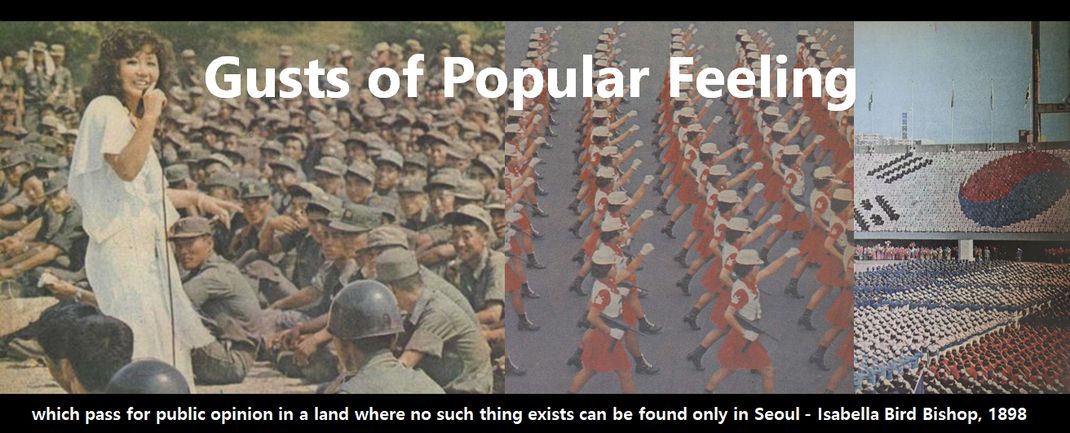The [Korean Film Archive] announced Thursday during a press conference that the seven short films, found in Russia and Germany, expand upon cultural aspects of the time as well as Japan’s economic plan to breed sheep in the north of the country and plant cotton in the south - part of efforts by Tokyo at the time to produce industrial raw materials via cheap labor.[...]Those films would appear to be the untitled films at the top of this schedule page.
The seven short films will be screened publicly in commemoration of the Independence Movement Day on March 1 in the Cinematheque KOFA, located in Sangam-dong, Mapo District, western Seoul.
Speaking of films, here are hundreds of Korean movie posters from the 1960s and 1970s (hat tip to Hamel).
And speaking of the colonial period, here are a couple dozen colorized photos from that time.
As well, the Seoul Metropolitan Government, the Ministry of Strategy and Finance, the Cultural Heritage Administration and Jongno-gu Office signed a memorandum of understanding for the restoration of Dilkusha on February 26 (hat tip to Robert Koehler). It was built by Albert Taylor, a gold miner who first reported the Samil Independence Movement to the world as a reporter for AP; more on the house and its history can be found at Brother Anthony's site here. It's to be opened in 1919 on the 100th anniversary of the Samil Movement (though the house itself was built in 1923). Mary Taylor's memoir 'Chain of Amber' is a fascinating read about her time in Korea from around 1916 to WWII. I think there may be reprints of it available at the RAS Office.

No comments:
Post a Comment